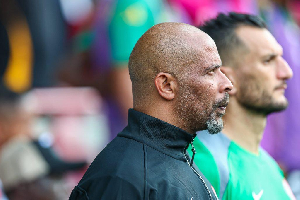Business News of Thursday, 25 September 2025
Source: www.legit.ng
BUA Chairman Abdul Samad Rabiu predicts stronger naira by December 2025, lists reasons
Abdul Samad Rabiu, Chairman of BUA Group, has expressed optimism about the Nigerian naira’s trajectory, forecasting that the exchange rate could strengthen to between N1,300 and N1,400 per US dollar by December 2025.
Rabiu made the comments on Wednesday, September 24, after a meeting with President Bola Tinubu at the State House in Abuja.
He praised the president’s economic strategies, describing them as "bold and decisive," and credited them with already delivering tangible improvements across the business environment and foreign exchange markets.
Mr Rabiu said:
“I expect that the exchange rate is going to strengthen even further. I expect that the rate should come down to maybe N1,300, N1,400 before the end of the year. And this is something that we should all celebrate.”
He highlighted recent moves by the Central Bank of Nigeria (CBN), noting that demand for dollars directly from the apex bank has dropped significantly.
According to him, businesses can now access foreign exchange through independent means, thereby reducing their reliance on the CBN.
Rabiu's prediction aligns with that of a member of the CBN's MPC who expressed optimism that the naira may appreciate to around N1,400 against the US dollar by December.
BUA boss supports Tinubu's economic reforms
The naira has experienced significant fluctuations since the federal government consolidated multiple exchange rates in June 2023 and began allowing market forces to determine the currency’s value.
These policy changes are part of President Tinubu’s broader economic agenda, which seeks to attract investment and rebuild confidence in the economy.
Earlier this year, the naira was trading above N1,600 to the dollar, but it has since seen some recovery.
As of Tuesday, it traded at N1,518 on the parallel market and N1,487.37 on the official market, according to CBN data.
Rabiu noted that the stronger naira and ongoing policy reforms are beginning to ease business challenges, particularly regarding access to foreign currency.
He mentioned that companies can now obtain dollars through international channels, including ATM withdrawals and credit card transactions.
He also credited the administration with laying the groundwork for economic stability and long-term growth, which is benefiting not just businesses but Nigerians overall.
The industrialist further noted that food prices are beginning to reflect better supply conditions, another sign that reforms are taking effect.
In July, Rabiu had also commended the CBN’s policy shifts, saying they had removed the need for companies to lobby for foreign currency.
He criticised the old system, where discrepancies between the official and black-market exchange rates made access to foreign exchange difficult and encouraged unhealthy practices.
The new system, he said, is more open and efficient.












